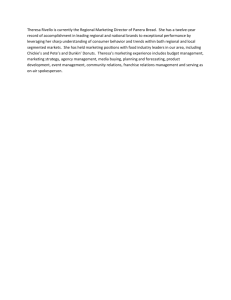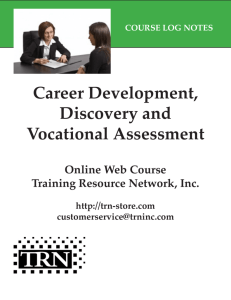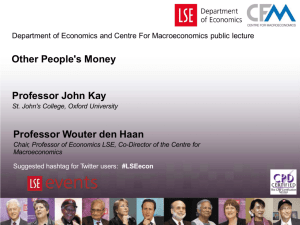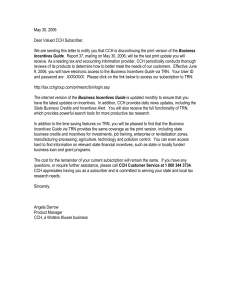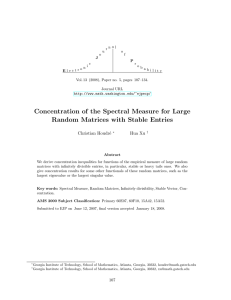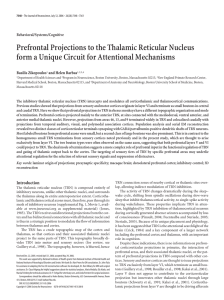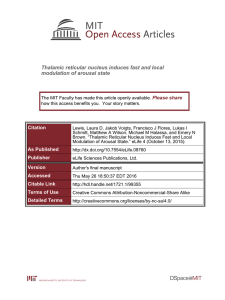TRN 304Y: Law and Social Issues
advertisement
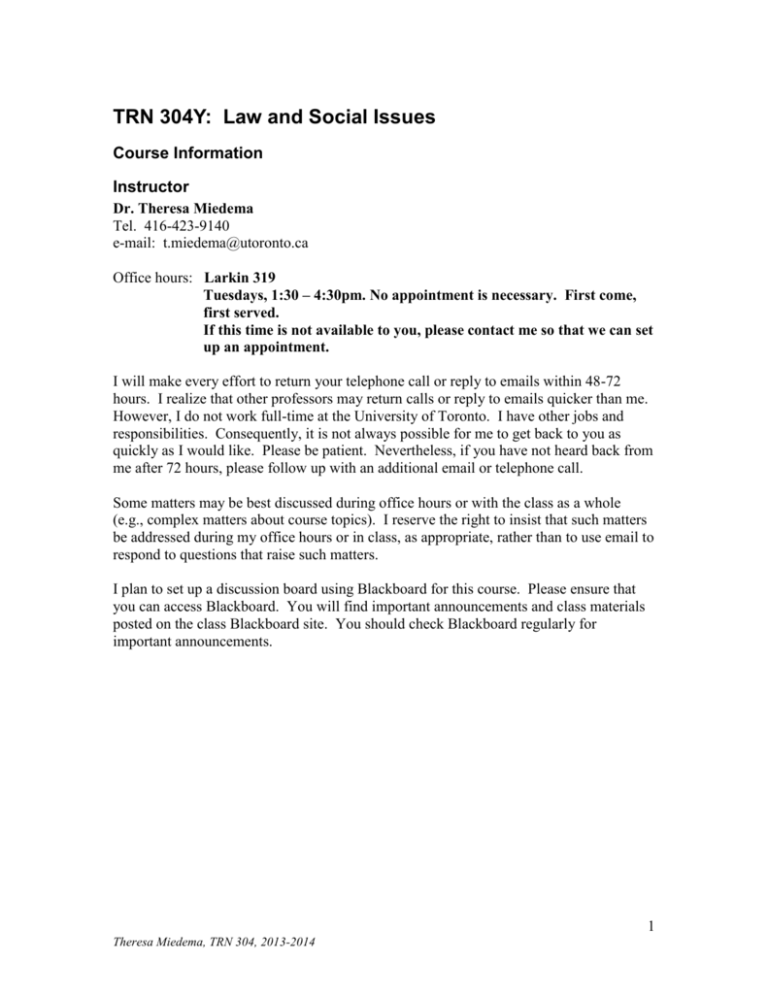
TRN 304Y: Law and Social Issues Course Information Instructor Dr. Theresa Miedema Tel. 416-423-9140 e-mail: t.miedema@utoronto.ca Office hours: Larkin 319 Tuesdays, 1:30 – 4:30pm. No appointment is necessary. First come, first served. If this time is not available to you, please contact me so that we can set up an appointment. I will make every effort to return your telephone call or reply to emails within 48-72 hours. I realize that other professors may return calls or reply to emails quicker than me. However, I do not work full-time at the University of Toronto. I have other jobs and responsibilities. Consequently, it is not always possible for me to get back to you as quickly as I would like. Please be patient. Nevertheless, if you have not heard back from me after 72 hours, please follow up with an additional email or telephone call. Some matters may be best discussed during office hours or with the class as a whole (e.g., complex matters about course topics). I reserve the right to insist that such matters be addressed during my office hours or in class, as appropriate, rather than to use email to respond to questions that raise such matters. I plan to set up a discussion board using Blackboard for this course. Please ensure that you can access Blackboard. You will find important announcements and class materials posted on the class Blackboard site. You should check Blackboard regularly for important announcements. 1 Theresa Miedema, TRN 304, 2013-2014 Introduction to TRN 304Y In this course, we will explore the legal dimensions of several contemporary social issues such as international development, the Internet and consumer protection, and multiculturalism and diversity. We will discuss these issues with a view to assessing the possibilities of the law and the limits of the law as an instrument for social change. Some of the themes we will explore are: The relative value of public and private law in terms of addressing important social issues. The limits of public and private law in terms of addressing important social issues. Process-related concerns: Does legal process involve aspects that impede the use of law as a tool of social change? What are the strengths of various types of legal processes? Remedy-related concerns: what can the law give? What are the limits of the law in terms of remedies? Whether and how the law is implicated in creating and/or sustaining injustices in society. We will also give careful consideration to effective advocacy, particularly in written form. You will be challenged to become a strong advocate by improving your writing style and grammar. Good advocacy skills will serve you well in any profession. Course Objectives To explore how law intersects with major social issues. To develop an understanding of both the strengths and the weaknesses of the law as an instrument for socio-political change. To encourage informed discussion of complex socio-legal issues. To develop critical analysis skills and to apply these skills to the study of law and society. To improve writing style. To develop and to improve the skills necessary to undertake focused research projects and to produce a research paper. 2 Theresa Miedema, TRN 304, 2013-2014 Format of Classes Classes will be designed to provide you with a blend of background information (generally through lecture format) and ample opportunity for discussion. In order to make the most out of the discussions, you need to do the assigned readings. Please come to class prepared to talk about the designated topic and the related materials. Note: You will NOT lose marks for making comments that are not “correct” or that are off the mark. Classes begin at 10:10am and end at 12:00 noon on Tuesdays. You may not record lectures and class discussion in any format, using any device, without my express permission. Class Attendance Class attendance is not mandatory. However, ten percent (10%) of your final mark is based on participation in class discussions, and class attendance will factor into that ten percent. (It is hard to participate in class discussions if you are absent.) Illness and family emergencies are acceptable excuses for missing class. In general, appointments with other professors or T.A.s, medical appointments (except with specialists), dental appointments, special lectures or seminars, travel, sports events, hangovers, and the like are not acceptable excuses for missing classes. Policy on doctor’s notes: I do not require a doctor’s note for every absence related to illness. You are required to provide a doctor’s note only after you have missed three or more consecutive classes. You must, however, record your absence using the ROSI absence declaration. Note that YOU are responsible for contacting your classmates about any important announcements, notes, etc. Please ensure that you have a “buddy” in this class who can advise you of any information you miss in class. As a general rule, I do not distribute my lecture notes or slides to students. It is your responsibility to take notes. You may not use any type of recording device in my class. (See my “Use of Technology” policy.) You may use a laptop, subject to the provisions in my “Use of Technology” policy. Hand-outs distributed in class will generally be posted on Blackboard within four days. Course Materials The course materials are available through the University of Toronto Bookstore (St. George campus). 3 Theresa Miedema, TRN 304, 2013-2014 Evaluation You will be evaluated in a variety of ways in this class. The assignments and their values are listed below: Participation – 10 percent Test – 20 percent Written work – 70 percent o Two critical reflection pieces, each worth 10 percent o One major research paper: Statement of topic, worth 5 percent; outline and overview of topic, worth 10 percent; and actual research paper, worth 35 percent Participation – This part of your evaluation includes attendance at class. Your grade will also reflect your contributions to class discussions. Contributions to class discussions includes listening respectfully to your peers and engaging in dialogue with them. You will NOT lose marks for making comments that are not “correct” or that are off the mark. You will NOT lose marks for disagreeing with me. Test – There is one test in this course, scheduled for October 15, 2013. This test is worth 20 percent of your final mark. The test will be 60 minutes long. Written work – There are five written assignments in this course. The assignments are: First reflection essay, 2-3 pages, due on Nov.26, 2013 (worth 10 percent of your final mark); Second reflection essay, 2-3 pages, due on April 1, 2014 (worth 10 percent of your final mark); Statement of topic for major research paper, due November 5, 2013. Outline and topic overview for major research paper, due on January 21, 2014 (worth 10 percent of your final mark); and Major research paper, 15 pages, due on March 11, 2014 (worth 35 percent of your final mark). I will set questions or topics for the papers. There will be a choice of questions/topics for every paper you do. In addition, you are always welcome to propose your own topic for a paper. You must follow the TRN 304Y/425Y Style Guide for every assignment. This Style Guide is available on Blackboard, and covers topics from plagiarism (how to avoid it), citation style, format of papers, grammar, and style. Academic integrity is fundamental to learning and scholarship at the University of Toronto. Participating honestly, respectfully, responsibly, and fairly in this academic community ensures that the U of T degree that you earn will be valued as a true 4 Theresa Miedema, TRN 304, 2013-2014 indication of your individual academic achievement, and will continue to receive the respect and recognition it deserves. Familiarize yourself with the University of Toronto’s Code of Behaviour on Academic Matters (http://www.governingcouncil.utoronto.ca/policies/behaveac.htm). It is the rule book for academic behaviour at the U of T, and you are expected to know the rules. Potential offences include, but are not limited to: In papers and assignments: Using someone else’s ideas or words without appropriate acknowledgement. Copying material word-for-word from a source (including lecture and study group notes) and not placing the words within quotation marks. Submitting your own work in more than one course without the permission of the instructor. Making up sources or facts. Including references to sources that you did not use. Obtaining or providing unauthorized assistance on any assignment including o working in groups on assignments that are supposed to be individual work, o having someone rewrite or add material to your work while “editing”. Lending your work to a classmate who submits it as his/her own without your permission. On tests and exams: Using or possessing any unauthorized aid, including a cell phone. Looking at someone else’s answers Letting someone else look at your answers. Misrepresenting your identity. Submitting an altered test for re-grading. Misrepresentation: Falsifying or altering any documentation required by the University, including doctor’s notes. Falsifying institutional documents or grades. To remind you of these expectations, and help you avoid accidental offences, I will ask you to include a signed Academic Integrity Checklist with every assignment. If you do not include the statement, your work will not be graded. A copy of this Academic Integrity Checklist is set out in Appendix A – Statement of Academic Integrity in the TRN 304Y/TRN 425Y Style Guide. The University of Toronto treats cases of academic misconduct very seriously. All suspected cases of academic dishonesty will be investigated following the procedures 5 Theresa Miedema, TRN 304, 2013-2014 outlined in the Code. The consequences for academic misconduct can be severe, including a failure in the course and a notation on your transcript. If you have any questions about what is or is not permitted in this course, please do not hesitate to contact me. If you have questions about appropriate research and citation methods, seek out additional information from me, or from other available campus resources like the U of T Writing Website. If you are experiencing personal challenges that are having an impact on your academic work, please speak to me or seek the advice of your college registrar. Due dates & lateness policy Due dates for papers are noted above. All papers are due at the beginning of class. I have posted instructions for handing in papers late on Blackboard. You must follow these instructions. Papers submitted in a manner that does not comply with these instructions may not be accepted. You will be penalized three percent (3%) per day for handing in your paper late. Weekends will count for one day. No assignment will be accepted after ten days past the official class due date. Further instructions concerning these papers will be provided when the assignment is distributed to you. I will attempt to return your assignments within two to three weeks. However, I do not work full-time at the University of Toronto. I have other jobs and responsibilities. Consequently, I may not be able to return assignments as quickly as some of your other professors. If the anticipated turn-around time for papers and exams is too long for you, I advise you not to take this course. WRITING STYLE, SPELLING, AND GRAMMAR WILL COUNT IN EVERY PAPER AND EXAM! This course emphasizes effective written advocacy. The ability to write well is a crucial skill. On your first paper, you will not lose marks for grammar and style unless your writing falls below a standard reasonably applied to third year students at the University of Toronto. You may improve your mark, however, by demonstrating significant skill in writing. I will provide each person with feedback on grammar and style. In each subsequent paper and written assignment, you will be expected to show an improvement in your writing. The failure to do so will result in lost marks for grammar and style— even if your arguments are otherwise brilliant. However, you may gain extra marks if you demonstrate an effort to improve your writing style in response to the feedback you have received. In addition to the Style Guide, here are five other good resources for assistance with writing and style: 6 Theresa Miedema, TRN 304, 2013-2014 1. 2. 3. 4. university writing centres; dons at your college; talk to me; the dictionary, especially the OED (make sure you are using words correctly!); and 5. Strunk & White’s The Elements of Style. I highly recommend that you purchase (and read) Strunk & White’s The Elements of Style. This book is readily available at most bookstores and is relatively inexpensive. (My copy cost $11.95.) It is short and contains key rules of grammar. It is also an excellent guide to writing style. As a general rule, I follow the grammar rules outlined in The Elements of Style. 7 Theresa Miedema, TRN 304, 2013-2014 Appendix A: Class Reading Schedule BB: Materials posted on Blackboard All other materials are in the Casebook Date Topic Sept. 10 Introduction to course Introductory discussion: What is law? Reading TRN 304/425 Style Guide (BB) Sept. 17 Riggs v. Palmer, NYCA Law as substance and reasoning H.L.A. Hart, The Concept of Law Sept. 24 Law’s Internal Morality Law as process (Is there “law” in process?!) Lon Fuller, The Morality of the Law Oct. 1 Law as process Tom R. Tyler & E. Allan Lind, “Procedural Justice” Procedural rights: “Natural justice” (procedural fairness/due process) Evans et. al., Excerpts from Administrative Law Oct. 8 Remedies Mitchell McInnes et. al., Excerpts from Managing the Law: The Legal Aspects of Doing Business, 2nd ed. Constitutional Court of South Africa, South Africa v. Grootboom Oct. 15 Rights and remedies --Second generation rights --Remedies for second generation rights TEST – 60 minutes Diversity in the Polity: Understanding the Issues Robert D. Putnam, “E Pluribus Unum: Diversity and Community in the Twenty-first Century: The 2006 Johan Skytte Prize Lecture” Oct. 22 Francis Fukuyama, “Identity and Migration” Prospect Magazine, Issue 131, Feb. 2007 8 Theresa Miedema, TRN 304, 2013-2014 Oct. 29 Diversity in the Polity: Multiculturalism and the Canadian Context Canada, Multiculturalism Act (BB) Tom Tyler, “Governing Pluralistic Societies” Nov. 5 Statement of Research Topic due. Conflicts of rights in the Canadian mosiac Entangled: Women’s rights, cultural rights, and headscarves in the diverse polity N. Torbisco Casals, “Multiculturalism, Ethnic Minorities and the Limits of Cultural Diversity” R. v. N.S. (SCC) Raveena Aulakh, “Court gives woman second chance for niqab at trial” (Toronto Star) J. Heinrich, “Muslim head scarf no threat to Quebec values, report says” (Montreal Gazette) Supplementary: Tabassum F. Ruby, “Listening to the voice of hijab” Nov. 12 Fall Break Nov. 19 Inclusion in the Polity and Homo Sacer: Does everyone fit in our legal paradigms? Nov. 26 First Critical Reflection Paper Due Anthony C. Infanti, "Homo Sacer, Homosexual: Some Thoughts on Waging Tax Guerrilla Warfare" John Schwartz, “When Same-Sex Marriages End” (NY Times) Christie v. York, [1940] SCR 139 Discrimination in the Private Realm: Racial Bias Cloaked in Freedom of Contract Legal Concepts and their Intersection with Race, Space, and Place Dec. 3 Law and Consumer Protection Franco Ferrari, “Donoghue v. 9 Theresa Miedema, TRN 304, 2013-2014 The Snail in the Ginger Beer: The Origins of Product Liability From the Snail to McDonald’s Coffee Jan. 7 Jan. 14 Stephenson’s 60th Anniversary” Richard Epstein, “The Unintended Revolution in Product Liability Law” Consumer Attorneys of California, Know the Facts: The McDonalds Coffee Case WINTER BREAK Consumer Protection in the Broder Kleinschmidt, “An New Wild West: Liability and International Comparison of ISP’s the Internet Liabilities for Unlawful Third Party Content” Law and international development: The Rule of Law What can law do to promote development? Doug Lichman, “Holding Internet Service Providers Accountable” Michael J. Trebilcock & Ronald J. Daniels, “The relationship of the rule of law to development” in Rule of Law Reform and Development: Charting the Fragile Path of Progress Recommended reading: Stephen Marks, “The Human Right to Development: Between Rhetoric and Reality” Jan. 21 Research Paper Outline Due A critical assessment of the Rule of Law and its role in promoting development What are the problems with implementing ROL? Jan. 28 Impediments to institutional reform: Path Dependence Feb. 4 Responding to atrocities: what can the law do? Rosa Ehrenreich Brooks, “The New Imperialism: Violence, Norms, and the ‘Rule of Law’”, pp. 2275-2289, 2301-2314, 23182328, 2333-2340. Case study 1: Kosovo (in Brooks, pp2290-2301) Case study 2: Jaskaran Kaur, “A Judicial Blackout: Judicial Impunity for Disappearances in Punjab, India” Mariana Prado & Michael Trebilcock, “Path Dependence, Institutions, and the Dynamics of Institutional Reform” Neil J. Kritz, “Coming to Terms with Atrocities: A Review of 10 Theresa Miedema, TRN 304, 2013-2014 Accountability Mechanisms for Mass Violations of Human Rights” Feb. 11 Responding to atrocities: Are there deeper issues at stake? Lisa J. Laplante, “Transitional Justice and Peace Building: Diagnosing and Addressing the Socioeconomic Roots of Violence through a Human Rights Framework” Feb. 18 Feb. 25 Reading Week Responding to atrocities: International responses Gone Fishin’ George A. Critchlow, “Stopping Genocide Through International Agreement When the Security Council Fails to Act” Case study: Daniel Hemel & Andrew Schalkwyk, “Tyranny on Trial: Regional Courts Crack Down on Mugabe’s Land ‘Reform’” March 4 March 11 Case Study: Law and Racial Desegregation in the US (Part I: A more conventional analysis) Was law a help or a hindrance? Did it offer a PROCESS? Could it respond to INJUSTICE? Were legal remedies HELPFUL? Major Research Paper Due Case Study: Law and Racial Desegregation in the US (Part II: The “Legal Crits” weigh in) J. Skelly Wright, “Public School Desegregation: Legal Remedies for De Facto Segregation” Brown v. Board of Education (USSC) Derrick A. Bell, Jr., “Serving Two Masters: Integration Ideals and Client Interests in School Desegregation Litigation” Was law a help or a hindrance? Did it offer a PROCESS? Could it respond to INJUSTICE? Were legal remedies HELPFUL? March 18 The Rise of a Human Rights Eric M. Adams, “Building a Law 11 Theresa Miedema, TRN 304, 2013-2014 Culture March 25 April 1 Has “rights talk” pervaded our culture? How do human rights and culture intersection, and how does this affect the law? Do human rights offer hope for development? Protecting the environment: Law and the reduction of greenhouse gases Second Critical Reflection Paper Due of Human Rights: Roncarelli v. Duplessis in Canadian Constitutional Culture” Quick review of the Grootboom case, Christie v. York, and the notion of the Homo Sacer David G. Duff, “Carbon Taxation in British Columbia” Reflections about the role and utility of the law in addressing injustice and social ills. Course Wrap-up 12 Theresa Miedema, TRN 304, 2013-2014 the rules. 13 Theresa Miedema, TRN 304, 2013-2014
